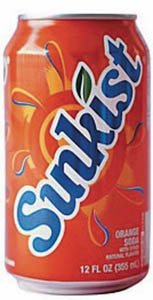
Shemot 5:3, 7:26
“Mom, can I have orange soda?”
“No, dear.”
“Please?”
It was a Monday night in Springfield, and Dina Traub was sitting in the local deli, Essabissel, with her youngest child, Danielle. Her husband was away on business in Denver, her oldest was at basketball practice until eight, and her second-born was at choir and then was planning to sleep at a friend’s. It was just her and her baby with a night on the town, and she was feeling, for lack of a better term, free.
“Sure, Danielle, orange soda is fine. But don’t tell your brother or sister. It will be our secret.”
That really made Danielle smile. Orange soda and a secret.
They had already eaten all the pickles the waiter had put out on the table and polished off most of the rye bread in the basket. The restaurant was empty. Dina assumed most families were home polishing off the last of their Shabbat leftovers on a Monday night or eating something you could whip up quickly, like baked ziti or fish sticks. Who goes out to eat on a Monday? It’s a school night, with lots of homework and plenty of responsibilities. Piano practice. Board meetings. Work assignments. Sitting in the empty Essabissel with only one child, Dina felt buoyant, almost decadent.
“And Danielle? If you finish your chicken nuggets, you can have any dessert you want.”
“Even Jell-O?
“Even Jell-O. With whipped cream, if you like.”
“Holy cow.”
As for Dina, she normally didn’t eat red meat—high cholesterol, and all that—but tonight she ordered a double-decker sandwich, corned beef and pastrami. Tonight, all bets were off.
“You know, Danielle, we’re starting to read the book of Shemot in shul this week.”
“I know, Mommy. That’s when we were slaves and then left Egypt.”
“Yes, well, that’s probably more next week’s parsha. This week we’re still slaves.”
“Bummer.”
“Um, yes, bummer. Major league bummer. Still, I can’t help feeling like tonight we’re celebrating our freedom.”
“Really?”
“Yes,” said Dina, pinching Danielle’s cheek lightly, “Thanks to Hashem freeing us from Egypt, we’re no longer slaves, and we’re free to do as we please. We can do goofy things, like drink orange soda or eat whipped cream. Tonight, I feel especially liberated. Do you know what I mean?”
“Sure, Mommy.”
But how could an eight-year-old girl in suburban New Jersey know anything about liberation? For that matter, how could she, a 38-year old soccer mom, understand either? To understand freedom fully, one probably had to experience true servitude.
The orange soda arrived before their main courses.
“Can I drink my soda now?”
Any other night the answer would have been no. Danielle would have been instructed to wait for her main course.
“Sure, honey, but don’t forget to make a bracha.”
“Of course, Mommy.”
“Do you know why?”
“Because you have to make a bracha on everything you eat?”
“Well, yes, of course. But I was still thinking of Parshat Shemot. When the Jews were freed from Egypt, they didn’t leave just to escape slavery and have orange soda in the desert. They were going out to worship Hashem. When Moshe and Aharon tell Pharaoh to free the Jews, they say “Neilcha na derech shloshet yamim bamidbar v’nizbichah laHashem Elokeinu—Let us now go for a three-day journey in the wilderness, and we shall bring offerings to Hashem our God.” Hashem says it even more clearly in next week’s parsha: “Shalach et ami viya’avdooni—send My people out that they may serve Me.”
“So we are free, but we use our freedom to worship God. No orange soda without the blessing.”
“Got it.”
Danielle unsheathed her straw, blowing the paper cover across the table at her mother. She made the blessing, …shehakol nihiyeh bidvaro—through Whose word everything came to be, and then drained the bubbly orange liquid in what seemed to be one giant suck. The slurp noise from the straw at the bottom of the ice-filled glass happened in a matter of seconds.
“Freedom is good.”
“Ain’t that the truth.”
By Larry Stiefel










